In Japanese, "NG" means something "is not permitted," that it "is not okay," that it is "censored," or that someone "can't handle" something.
It's pronounced enu-jii エヌジー.
See also: Alphabet Letters in Katakana.
Meaning
The acronym NG stands for the English words "Not Good." However, note that the way NG is used in Japanese is different from how "not good" is used in English, making it a sort of wasei-eigo 和製英語.
NG doesn't mean "not good" in general, which would be yokunai 良くない. It means "not good" only in the same sense as dame 駄目, used when something shouldn't be done or said.
- sore wa dame
それはダメ
That's no good. - sore wa enu-jii
それはNG
(same meaning.)
Compare:
- koora wa dame
コーラはダメ
Cola is "no good."
[You] shouldn't [drink] carbonated drinks.
[I] can't [drink] carbonated drinks. (because I'm on a diet.)
[I] can't [drink] carbonated drinks. (I physically can't, because of health issues.) - koora wa enu-jii
コーラはNG
Examples
Examples of NG things include:
- Slurs, racist words are NG in newspapers and TV.
- Uncensored gore and sexual imagery is NG in TV anime.
- Directors acting on their own without consent of the production committee is NG.
- Things you can't handle, like if you can't bear watching horror movies, that's NG for you, if you can't drink alcohol, that's NG for you.
- Context: Saiki Kusuo 斉木楠雄 can't handle two things, cockroaches and Nendou, who appear before him one after the other.
- {{koudou ga yomenai} mushi no} tsugi wa {koudou ga yomenai} Nendou made...
行動が読めない虫の次は行動が読めない燃堂まで・・・
After {a bug [whose] {actions [I] can't read}} is Nendou [whose] {actions [I] can't read}... - jii kimoi
G(ジー)◎キモイ
G. Gross.- G commonly stands for:
- gokiburi
ゴキブリ
Cockroach.
- enu kimoi
N(エヌ)◎キモイ
N. Gross.- N is for Nendou.
- kanben shite kure, boku wa enu mo jii mo enu-jii nanda
勘弁してくれ僕はNもGもNGなんだ
[Give me a break], for me N and G are no good.- I can't handle neither Nendou nor cockroaches.
- Context: Nozaki Umetarou 野崎梅太郎, a mangaka 漫画家, explains why he can't add delinquent characters in his manga that actually do illegal things.
- houritsu ihan suru to tomerareru-n-da
法律違反すると止められるんだ
If [they] break the law [the publishes will] stop [the manga]. - mane shichau kara tte
マネしちゃうからって
[They say] [it's] because [the readers, who are kids,] will copy [it]. - enu-jii
NG
No good.
NGワード
An enu-jii waado NGワード, literally "not-good word," is a "taboo word." Basically:
- sore wo iccha dame!
それを言っちゃだめ!
Saying that is no good!
[You] shouldn't say that!
- Context: bad guy triggers protagonist by saying taboo word.
- yowattenakereba hontou {kateru} aite demonai-n-daga na
弱ってなければ本当勝てる相手でもないんだがな
If [she] weren't weakened in reality [she] wouldn't be an opponent [that] {[I] could defeat}. - {nani ga atta ka} shiran ga kami ni kansha shiyou
何があったか知らんが髪に感謝しよう
[I] don't know {what happened} but [I] thank God [for it]. - a, sore, kami wa enu-jii waado
あ それ 神はNGワード
Ah, that, god is an NG word. - nani?
何?
What?
Note that waado ワード is a katakanization of the English word "word." It's not how you normally say "word" in Japanese, but it's used in slangs, like:
- pawaa waado
パワーワード
Power word. (literally.)
A word or phrase of impact, powerful in the sense of how shocked you would be to hear it uttered.
- {chikara no aru} kotoba
力のある言葉
A word [that] {has power}.
- {chikara no aru} kotoba
顔出しNG
The phrase kao-dashi enu-jii 顔出しNG, means that "showing [one's] face," kao wo dasu 顔を出す, is no good. That is, they won't take photos or appear in videos that show their faces, for the purpose of remaining anonymous and protecting their privacy.
- Context: Shinomiya Kaguya 四宮かぐや tells Adolphe Pescarolo アドルフ・ペスカロロ why she can't take photos.
- {{futokutei-tasuu ga me ni suru} medhia ni kao-jashin wo keisai shite wa naranai} kimari deshite
不特定多数が目にするメディアに顔写真を掲載してはならない決まりでして
[My family made] a decision [that] {[I] shouldn't publish face-photos on media [which] {a large number of unspecified people see}}.- ~jashin
~じゃしん - shashin
写真(しゃしん)
Photo.
- ~jashin
- ou~~ {kaodashi enu-jii toiu} yatsu desu ka
オゥ~顔出しNGトイウやつデスか
Ooh~~ is [this that thing] {called kaodashi NG}?- Adolphe Pescarolo is a foreigner.
- His Japanese is accented.
- This is represented orthographically by spelling words with katakana.
There are singers and other sorts of artists that won't show their faces in public. This is similar to how some writers write under pseudonyms, called pen names.
Some don't want to be personally associate with their work due to stigma.
Notably, sex industry workers who wouldn't want their parents and family to know their line of work.
There are also manga artists who wouldn't want their parents and family to know their line of work, and LN writers, doujinshi 同人誌 artists, virtual youtubers, voice actors, etc.
- Context: the protagonist confesses to his mother his aspirations.
- boku, mangaka ni naru
僕 マンガ家になる
I'll become a manga author. - dame
駄目
No. - suggee sokutou
すっげー即答
[That was] an extremely fast answer.- She didn't even think twice.
There are exceptions; Daft Punk wears helmets for artistic reasons, for example.
“We’re not performers, we’re not models – it would not be enjoyable for humanity to see our features,” de Homem-Christo says wryly, “but the robots are exciting to people.”
—Why Daft Punk Wear Helmets - rollingstone.com, accessed 2020-06-28.
- In Love Live! School Idol Festival ALL STARS, Ten'nouji Rina 天王寺璃奈 is an idol who won't show her face, covering it with the "Rina-chan board," Rina-chan boodo 璃奈ちゃんボード, a notebook with a face drawn on it.
For the record, sugao 素顔 refers to someone's "bare face." Normally this means without makeup, but in this case it could mean without a mask, too.
The easiest way to hide one's face is to simply not appear in front of cameras at all.
However, sometimes someone who wants to stay anonymous nevertheless takes selfies and posts them on the internet, in which case they'd be smarter not to include their head on the selfie.
Other times, an artist has to appear in front of the media for promotional reasons. Then they may wear a mask or something like that.
Photos and videos sometimes use black censor bars over people's eyes to hide their identity. This is mostly associated with satire, when a character is supposed to be being interviewed under anonymity, or they appear in the same photo as someone accused of a crime.
- kuro-mesen
黒目線
Black eye-line. Censor bars covering a person's eyes.
Naturally, it doesn't need to be a black bar.
Anime: Excel♥Saga, エクセル♥サーガ (Episode 6)
- mosaiku
モザイク
Mosaic.
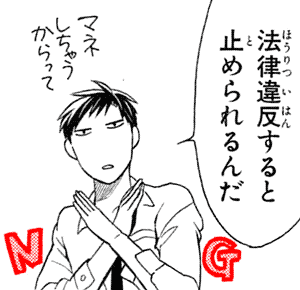
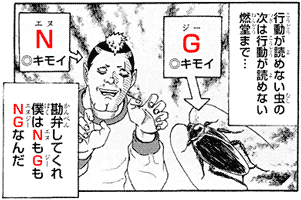
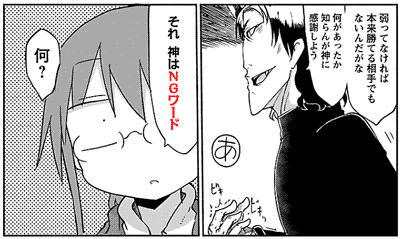
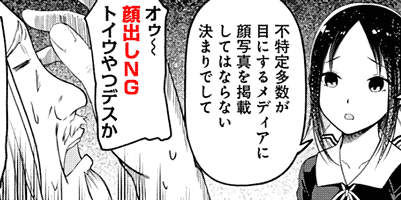
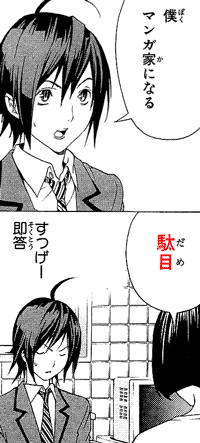

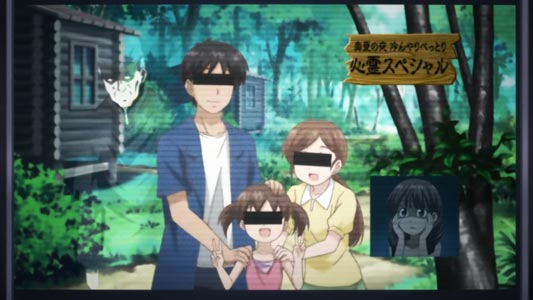
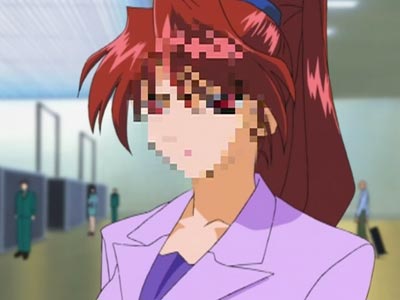
No comments: